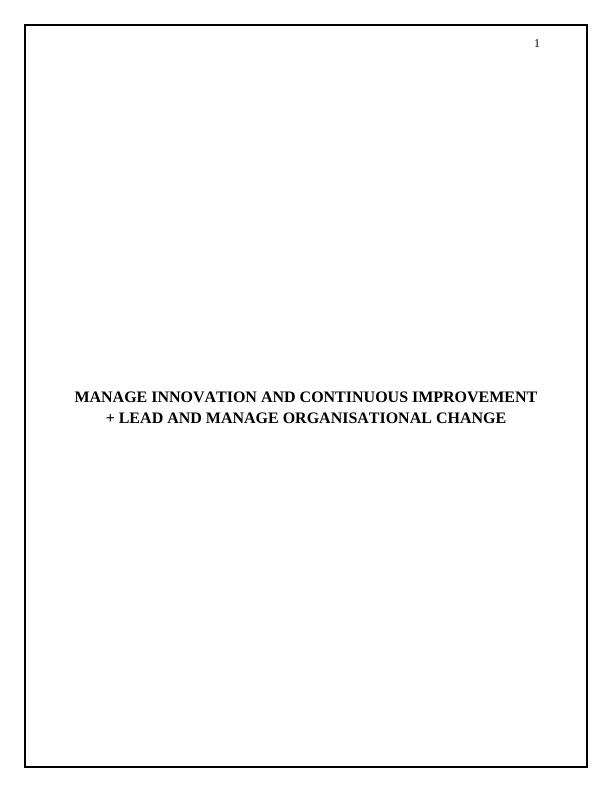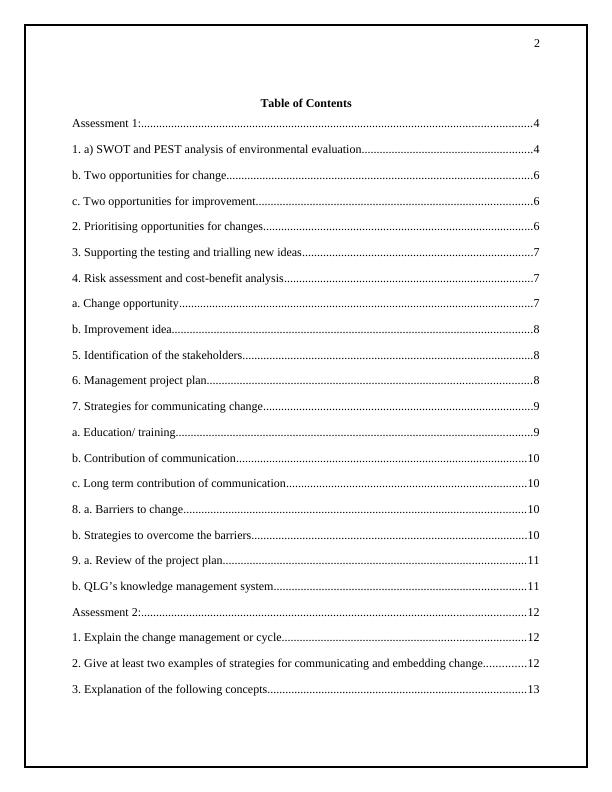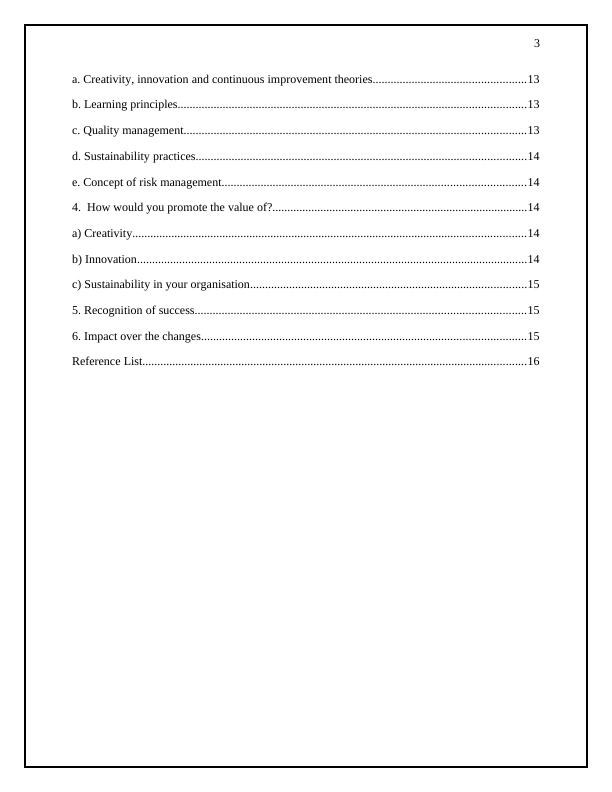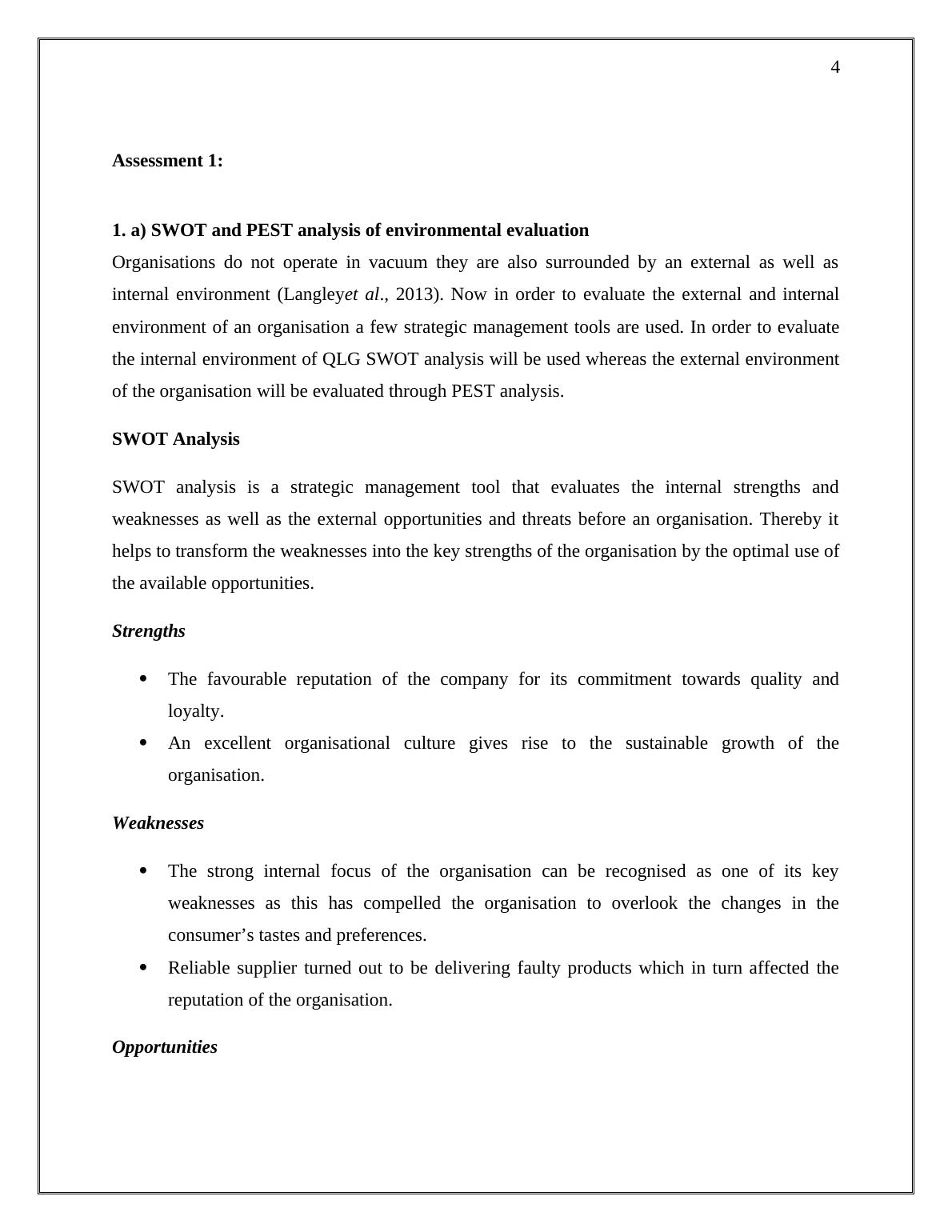Assessment of MANAGE INNOVATION AND CONTINUE IMPROVEMENT + LEAD AND MANAGE ORGANISATIONAL CHANGE
19 Pages4623 Words336 Views
Added on 2019-10-09
About This Document
9 MANAGE INNOVATION AND CONTINUOUS IMPROVEMENT + LEAD AND MANAGE ORGANISATIONAL CHANGE Assessment 1: 4 1. a) SWOT and PEST analysis of environmental evaluation 4 b. 14 a) Creativity 14 b) Innovation 14 c) Sustainability in your organisation 15 5. a) SWOT and PEST analysis of environmental evaluation Organisations do not operate in vacuum they are also surrounded by an external as well as internal environment (Langleyet al., 2013). In order to evaluate the internal environment
Assessment of MANAGE INNOVATION AND CONTINUE IMPROVEMENT + LEAD AND MANAGE ORGANISATIONAL CHANGE
Added on 2019-10-09
ShareRelated Documents
End of preview
Want to access all the pages? Upload your documents or become a member.
Manage Innovation and Continuous Improvement + Lead and Manage Organisational Change
|19
|4623
|380
Queensland Leisure Goods Case Study
|14
|3841
|33
Change Analysis for Queensland Leisure Goods
|20
|4320
|114
Finance and Mortgage Broking Exercise 2
|17
|4723
|320
Manage Risk - Desklib
|18
|3269
|349
Formula Sheet for Strategy Management
|27
|2717
|482




